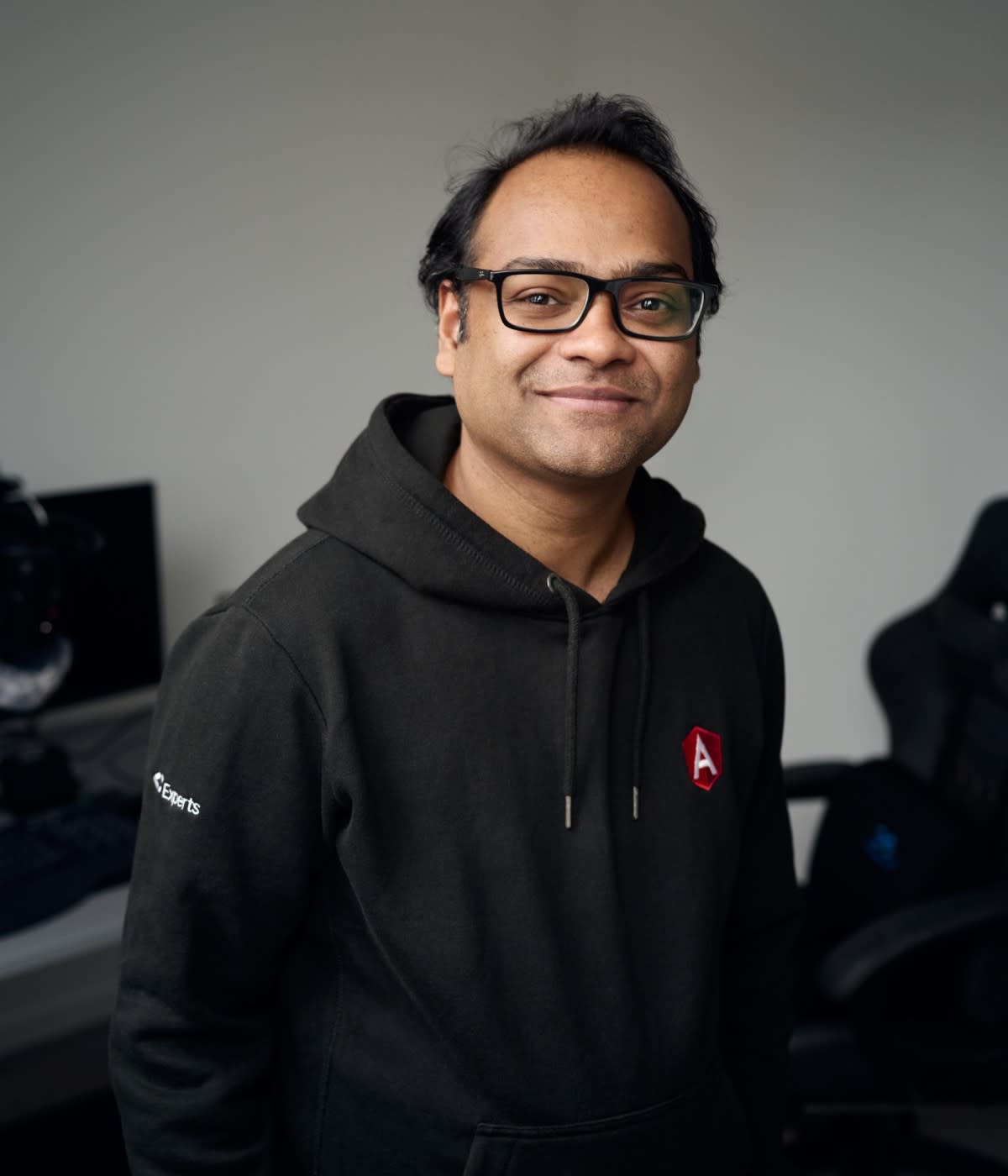Also on The ReadME Podcast
Where utility meets beauty: Hoppscotch
Throughout my life, I’ve had many “titles.” I used to work at a construction site. I was a foreman, a mason, and a chef. I’m a developer now, but that could change in five or 10 years. Maybe I’ll be a businessman, or a chef again. For me, titles don’t mean anything. I just do what I love, and I love being a developer. I also loved being a chef, and I loved being a construction worker.
After finishing high school, I took a break for a year because I didn’t have enough money to pursue college. I lived with my parents (and live with them now, too), and during that time, I taught myself how to develop from sites like Google, Stack Overflow, and CodePen. I think I used over 100 sites. I also took out a loan to complete my engineering degree. And while that entire experience was a big challenge, I was able to repay the loan four months after I got my first job, and it became one of my proudest moments.
While I studied computer science engineering, we had hackathons and tech talks, and, at one point, I made an app with some of my friends. We made a system for students to give faculty feedback online, and wanted to get the word out about it—which is how I learned about open source. I couldn’t believe there was this amazing community where everything is available to everyone else, and anyone could make their own version of our app, and remix it to fit their school. I was hooked.

Waking up to an overnight success
In August 2019, I graduated from college and I joined a very early stage startup called Zartek where I tested APIs. My day-to-day consisted of manually testing each one to get a schema of every response, which was hectic. That’s when I realized there was an entire category of API testing platforms for everything from CLI tools, to UI tools, and web apps. I tried them all, but none were easy to use. When I see an opportunity to make something easier from a developer’s point of view, I try to hack a solution and make it open. So I created an MVP called Hoppscotch with buttons, an input path, and a list box, and open sourced it. I had a GitHub page with a web app that allowed you to just enter a URL and, with the click of a button, get the response, along with all the metadata for that response. I could test all my APIs and it was very straightforward.

I wrote about Hoppscotch on Dev.to, and the next day when I woke up, I found 100+ GitHub notifications and 100+ Twitter notifications: Apparently the community thought it was a really good tool, and loved it! I must have gotten lucky, but it took off overnight. Many developers had even started contributing, raising issues and feature requests. It was so exciting!
The open source culture in India is less mature, but we do have some strong, concrete projects like Hoppscotch, Hasura, and Chatwoot, which get a lot of global attention. As a whole, the community is not that strong, but we are really working on strengthening it by getting the word out, participating in hackathons, and organizing tech talks.
Making Hoppscotch accessible to anyone and everyone
Hoppscotch is a single-page application that allows you to test APIs from your browser window, which means there’s no need to switch to another app or build a 500+ MB app that would consume your storage space. I built a user interface I would want to use as a developer.
The philosophy behind Hoppscotch is that it’s 100% transparent and flexible, in line with the ethos of open source software, which encourages other developers to use our library. From the beginning, I wanted to make sure that new developers could use Hoppscotch without any issues. There is no gateway, no firewall, no landing page, and no friction to get started with Hoppscotch. We intentionally did that to encourage any new user to start immediately. Experienced developers, too, of course. It’s made entirely from a developer’s point of view with beautiful design and very accessible icons. It’s also very screen-friendly. We had visually impaired users raising issues at early stages, and spent weeks making sure it was accessible to everyone.
The power of one developer and a more sustainable future
I was born with a low financial background, but right now, I’m financially stable. I don’t have any intentions to stop Hoppscotch or hand it off to somebody else; it’s been about one year, and the progress we’ve made is phenomenal. We built it for the individual developer, and every feature is free, but there could be some cool enterprise features—such as team collaboration work and a paid plan—that would make the project more self-sustainable.
Being a developer is priceless. I love building tools that help the community. I want to show others that it is possible for a guy like me to create a tool like Hoppscotch. We’ve received 32,700 stars, and counting, and it was really just me who started it. All of the growth and reach is organic, and we haven’t spent a single penny on advertising or marketing.
If you look at the second or third project in these categories, they’re built by 100+ developers working 24/7 at big corporations and multinational companies. And Hoppscotch is just run by me, my friend Andrew Bastin, and the lovely open source community. So my motivation has always been to show everyone else that it’s possible for a single-person army to create efficient tools and make them accessible for everyone.






